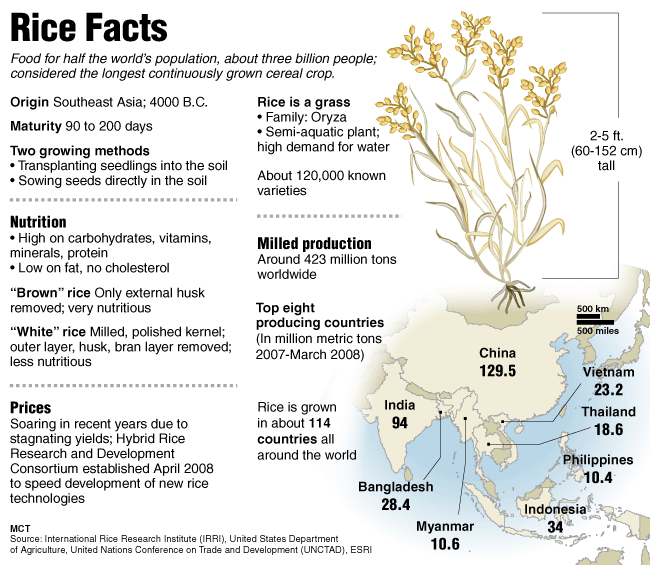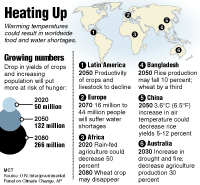
World News Desk
Learn the why behind the headlines.
Subscribe to the Real Truth for FREE news and analysis.
Subscribe NowLed by desperate citizens fed up with the inability to feed their families, protests over rising food prices and shortages have turned into full-scale riots, causing the deaths of at least six people and injuring dozens worldwide.
BBC News reported at least four people were killed and 20 injured when demonstrations against the high cost of food turned deadly in Les Cayes, Haiti. Protestors looted shops and fired on UN peacekeepers, damaging a UN gate. The island country has seen a 50% increase in food prices of principal items, including rice, beans and fruit, during the past year.
Earlier, the Sunday Tribune in South Africa reported that two men were killed in Cairo, Egypt, as they fought to buy bread. Similar struggles were reported in the Western African nations of Burkina Faso and Cameroon.
The World Bank said that 33 countries are facing threats of social unrest if something is not done to solve the situation. Other international officials warn that many more people will die if rations are not imposed to regulate the global market to combat the plummeting food supply.
Even the World Food Programme is struggling to continue feeding the more than 70 million mouths it provides food for every year. Director Josette Sheeran admitted in the Guardian that the organization is fighting a losing battle.
“This is the new face of hunger,” she said. “There is food on shelves but people are priced out of the market. There is vulnerability in urban areas we have not seen before. There are food riots in countries where we have not seen them before.”
She said thus far, countries that have had food riots include Morocco, Yemen, Mexico, Guinea, Mauritania, Senegal and Uzbekistan.
Analysts claim the reasons for the food shortage and price hikes vary, from rising energy and fuel costs to climate change.
While stormy weather patterns have wreaked havoc on harvests across the world, excessive droughts in areas typically considered “bread baskets” are also affecting crop yields. Australia, a nation known for its fertile landscape, is experiencing its worst drought in 100 years. Australia’s global wheat stocks are at their lowest level since 1979.
Adding to the unpredictable weather patterns is the increased use of biofuels, especially corn for ethanol. Although ethanol is thought to be more “eco-friendly,” there is less corn available for consumption—both for humans and animals. The reduction has augmented the price of corn, which has elevated the cost of raising livestock. In turn, farmers have been forced to raise their prices to accommodate for the higher grain prices.
Scientists have also discovered that a new disease—“wheat rust”—has been decimating wheat crops worldwide.
In addition, analysts link the crisis to increased food expenditures, especially rice, in countries exploding in population, including parts of Asia.
According to Bloomberg, rice recently hit a record $20.26 per 100 lbs which concerns authorities as it is the staple food for almost half the global population. Even in places where most foodstuffs are unavailable, rice is a consistent part of diet.
Because of the crisis, India, the world’s third-largest rice exporter, put restrictions on rice exports. Restrictions were also placed on China, Vietnam, Egypt and Thailand, which is the largest exporter of rice worldwide.
The restrictions have angered many of the world’s 3.3 billion people who depend on rice as part of their main diet, including in the Philippines, where many blame the Chinese for the price hike.
“The widespread view that Filipino-Chinese merchants, who are known to control the import and distribution of rice, are hoarding supplies plays into the deepest anti-Chinese sentiments of a country perceived locally to be dominated by ‘rich Chinese’ in just about every area of business and finance” (Asia Times).
Although experts maintain that food prices will eventually normalize, they expect it could take up to ten years.
“‘It’s not likely that prices will go back to as low as we’re used to,’ said Abdolreza Abbassian, secretary of the Intergovernmental Group for Grains for the UN Food and Agriculture Organization.
“‘In Haiti, unless the government is subsidizing consumers, consumers have no choice but to cut consumption. It’s a very brutal scenario’” (South Africa Tribune).

Rice is not the only export that has shot up: Wheat, corn, soybeans and dairy products are topping off at near record highs.
“In China, per capita meat consumption has increased 150 percent since 1980. The price of pork has jumped 58 percent in the past year. Beef is becoming a weekly indulgence” (ibid.).
The food shortage is even affecting nations that typically do not absorb price pinching. Because of rising wheat prices, bakeries across the United States have been forced to post signs apologizing for their prices to consumers, and restaurant owners are fearful prices will cause consumers to eat out less.
An article in the Guardian reported that “the last time America’s grain silos were so empty was in the early seventies, when the Soviet Union bought much of the harvest.”
And American officials warn it will only grow worse.
“There’s going to be real food inflation in this country,” said C. Larry Pope, president and chief executive of U.S. beef processor Smithfield Foods (USAToday).
Although analysts have labeled the food crisis a “perfect storm of conditions,” they recognize that it will take more than just good weather and lowering the food prices to stop the continuing shortages—it would involve a reassessment of world policy toward foodstuff needs.
“The snag is that tackling malnutrition is harder than sending bags of grain,” said an editorial in the Economist. “It means fixing health systems, improving the delivery of nutrients in the food chain, educating people about hygiene and other unpopular and unprofitable jobs.”
- World News Desk
- WEATHER & ENVIRONMENT
Other Related Items:
More on Related Topics:
- Corruption Survey Gives Many Nations Their Worst Scores in Over a Decade
- Tariff Threats Take Aim at Fentanyl Trafficking. Here Is How the Drug Reaches the U.S.
- More Aid Workers Have Been Killed in 2024 Than in Any Other Year, UN Says
- Vladimir Putin Touts Russia’s New Missile and Delivers a Menacing Warning to NATO


